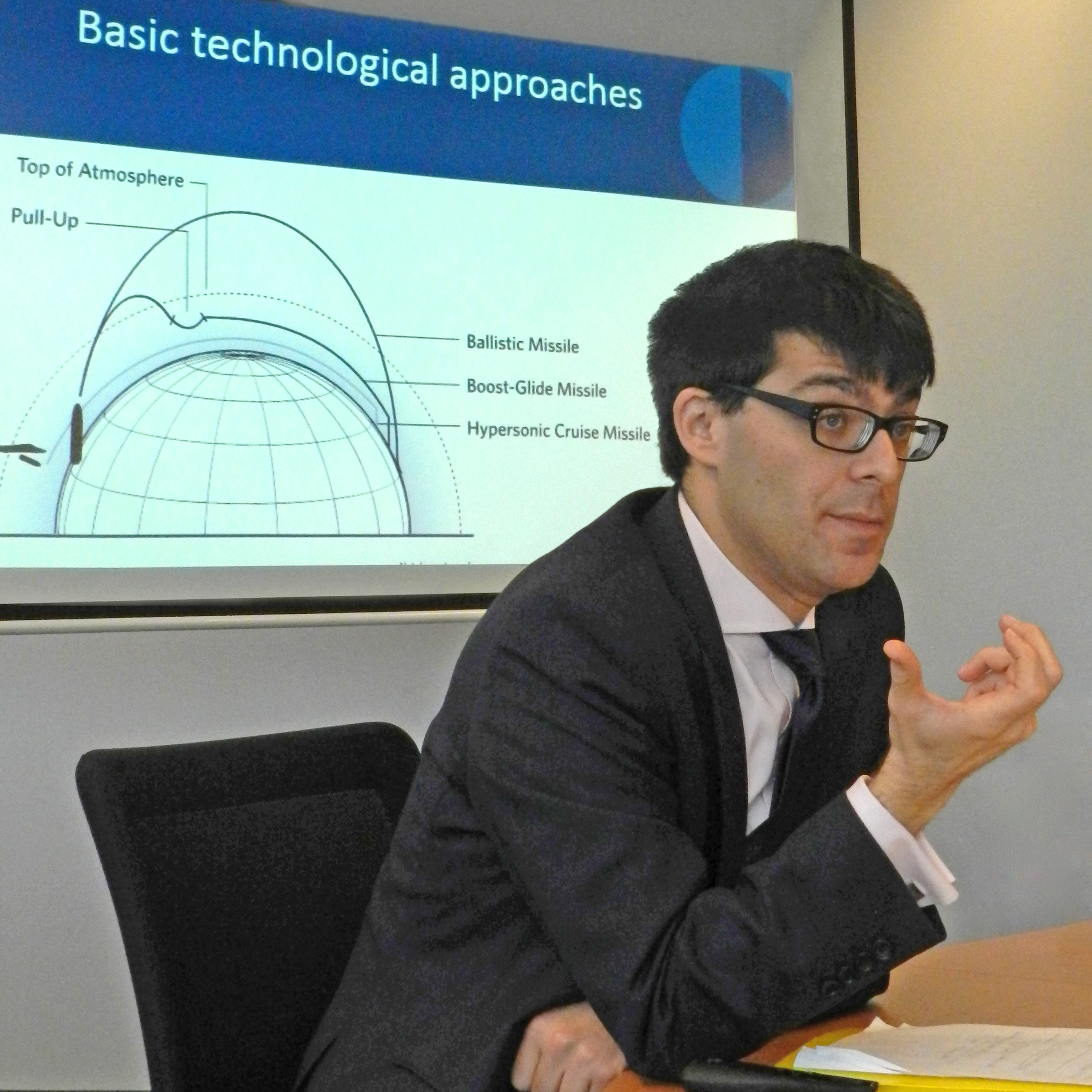

On July 16, 2013, the Vienna Center for Disarmament and Non-Proliferation (VCDNP) hosted a seminar by Dr. James Acton, Senior Associate at the Carnegie Endowment for International Peace, who spoke on "Arms Control During the Second Obama Administration: A View from Washington."
Dr. Acton noted some progress during President Barack Obama's first term towards the implementation of the agenda set out in his April 2009 Prague speech including, most notably, the signature and ratification of the 2010 New START Treaty with the Russian Federation. He also noted the significant challenges—both domestic and international—that led progress to stall. Given these challenges, President Obama's decision to try to relaunch this agenda early in his second term, in his June 2013 Berlin speech, demonstrates his personal interest and dedication to this issue. This interest is also shared by new administration officials, including Secretary of State John Kerry and Secretary of Defense Chuck Hagel.
ech, where Obama proposed to Russia a reduction in the number of deployed strategic warheads by up to one-third from New START levels. Acton noted that the administration's preference would probably be for parallel unilateral reductions within the framework of that Treaty to avoid a potentially difficult ratification process.
The Russian response to Obama's speech, according to Dr. Acton, demonstrates the differences between the United States and Russia with regard to further reductions, including the question of when the process should be multilateralized (the United States believes the next stage of reductions should be bilateral, while Russia currently insists on a multilateral format). These differences, he remarked, make him pessimistic about the prospect of an early agreement on nuclear arms reductions.
Acton also discussed the release of the Report on Nuclear Employment Strategy of the United States, which was submitted to Congress on the day of the Berlin speech and was prepared as part of the implementation of the 2010 Nuclear Posture Review. That document confirms the US goal of reducing reliance on nuclear weapons in US security policy, including by calling for "deliberate planning for non-nuclear strike options." Its language may also facilitate a decision to make unilateral reductions in the non-deployed US weapons.

Dr. Acton also discussed at some length the challenges of multilateralization of nuclear arms reductions. He argued that negotiating a treaty amongst all nine states that have nuclear weapons—or even a subset of them—would not be feasible in the short term. However, progress in this direction could be made through a series of bilateral interactions. In this context, Dr. Acton paid special attention to the prospects of engaging China—the only state among the P-5 that is believed to increasing the size of its nuclear arsenal, albeit at a slow pace. China argues that this expansion is a defensive reaction to US technological developments. Consequently, a process of Sino-US mutual reassurance, starting with a meaningful nuclear dialogue, is vital for international security and for the future of nuclear arms control and disarmament. That said, Acton did see a potential role for multilateralism in terms of facilitating greater transparency, data exchange, and confidence building measures.
With regard to the multilateral disarmament agenda, he expressed pessimism about possible progress in Fissile Material Cut-Off Treaty negotiations and about the possibility of early ratification of the Comprehensive Nuclear-Test-Ban Treaty (CTBT) by the US Senate. While the Administration continues to support CTBT ratification and to work towards it, the alignment of political forces in the Senate is not sufficiently favorable and ratification is highly unlikely during Obama's second term. Nonetheless, in Dr. Acton's view, President Obama remains deeply committed to the nuclear arms reduction agenda, and the possibility of unilateral steps and progress on confidence building with China mean the near future does not look completely negative.